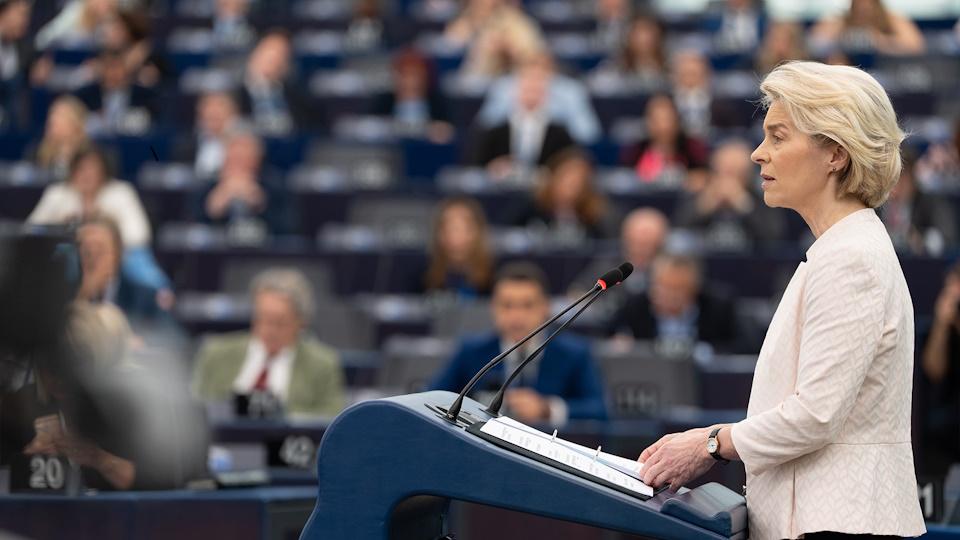EC's von der Leyen loses bid to stop disclosure of Pfizer texts

European Commission President Ursula von der Leyen has lost a lawsuit attempting to force her to disclose text messages with Pfizer chief executive Albert Bourla on COVID-19 vaccine procurement at the height of the pandemic.
Judges at the EU's General Court in Luxembourg have come down on the side of the New York Times and its journalist Matina Stevi in the dispute, which published an article in 2021 claiming that "personal diplomacy" had played a big part in the EU's order for 1.8 billion doses of Pfizer and BioNTech's Comirnaty COVID-19 vaccine.
The EU has come under criticism by activist groups, including Transparency International Global Health, which slammed what it says was secrecy surrounding the procurement of COVID-19 vaccines.
The judges ruled the Commission had no legal standing for its refusal to disclose the messages, although that verdict could go to appeal at the European Court of Justice (ECJ).
In 2022, the Commission said that "the search undertaken by the President's cabinet for relevant text messages corresponding to the request for access to documents has not yielded any results," which earned it a rebuke from the EU Ombudsman for "maladministration" and a warning that all EU institutions must ensure "accountability in an era of instant messaging."
It had earlier said that it did not consider that text messages fell under its internal criteria for document recording – a position that was rejected by the ombudsman.
Today, the judges said that the EC "has not sufficiently clarified whether the requested text messages were deleted and, if so, whether the deletion was done deliberately or automatically or whether the president's mobile phone had been replaced in the meantime."
In a statement, the court said: "By contrast, Ms Stevi and The New York Times have produced relevant and consistent evidence describing the existence of exchanges, in the form of text messages in particular, between the President of the Commission and the CEO of Pfizer in the context of the procurement of vaccines by the Commission from that company during the COVID-19 pandemic."
As a result, they have "succeeded in rebutting the presumption of non-existence and of non-possession of the requested documents," it added.
The Commission said it "will now closely study the General Court's decision and decide on next steps. To this effect, the Commission will adopt a new decision providing a more detailed explanation."
It continued: "Transparency has always been of paramount importance for the Commission and President von der Leyen. We will continue to strictly abide by the solid legal framework in place to enforce our obligations."












